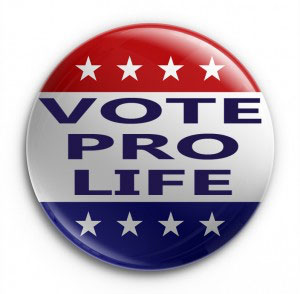 The Stewardship Foundation was founded on Judeo-Christian principles of morals and ethics as laid out by the call of Christian conscience in 2009. Conscience is not the same as opinions or feelings. So on the matter of voting for a pro-abortion candidate, we must follow our conscience, regardless of how we “feel” about a particular candidate.
The Stewardship Foundation was founded on Judeo-Christian principles of morals and ethics as laid out by the call of Christian conscience in 2009. Conscience is not the same as opinions or feelings. So on the matter of voting for a pro-abortion candidate, we must follow our conscience, regardless of how we “feel” about a particular candidate.
The taking of a God-given life is against natural law. It’s a matter of conscience, not opinion. It’s known by reason, not because it’s written down. Cain sinned when he murdered Abel long before Moses received the Ten Commandments. And Cain knew it was wrong to murder.
If a political candidate supports abortion, or any other moral evil, voting for that person makes us an accomplice in the moral evil at issue. So at this writing, where do the remaining committed candidates stand on abortion?
- Hillary Clinton (D) Consistently fights against pro-life and believes women have the right to abortion for any reason.
- Ted Cruz (R) Solid pro-life voting record since joining the Senate in 2013.
- John Kasich (R) Strong pro-life voting record during 18 years in Congress, and has signed 16 pro-life laws as governor of Ohio.
- Marco Rubio (R) Solid pro-life voting record during 5 years in the Senate.
- Bernie Sanders (D) Solid pro-abortion voting record (over 100 times) in his career.
- Donald Trump (R) Admits to being pro-choice in the past, but in 2012 declared himself pro-life after what he terms “a personal experience” with friends. He pledges to fight against the abortion-funding loopholes in ObamaCare.
So there it is. For those of strong moral conviction, we have but one choice this presidential election year: we must vote our conscience and cast our vote on the side of life.